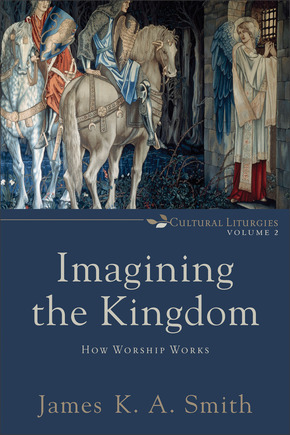Many of us live our lives frantically, feeling like we are always in a hurry. It seems that there is never enough time to do all that we need to do. In fact, you might be thinking to yourself at this very moment, “I really don’t have time to read this right now. I have too much to do.”
If that sounds like your life, then you need to get your hands on a copy of Kevin DeYoung’s new book,
Crazy Busy: A (Mercifully) Short Book about a (Really) Big Problem. It's a brief, well-written, humorous book about busyness, infused with common sense as well as biblical and theological wisdom.
Here's the gist (but I really do recommend reading it yourself...unless you're just too busy!).
THREE DANGERS OF BUSYNESS
DeYoung begins by discussing three dangers that we must be aware of:
- Busyness can ruin your joy
- Busyness can rob your heart
- Busyness can cover up the rot in your soul
While busyness can certainly have a negative effect on our physical bodies, the most serious threats are spiritual. Put simply, busyness sets our souls at risk.
SEVEN DIAGNOSES TO CONSIDER
The next section of the book deals with seven different diagnoses of busyness.
- You are beset with many manifestations of pride (i.e., people-pleasing, pats on the back, performance, possessions, proving yourself, pity, power, perfectionism, prestige, posting [social media]).
- You are trying to do what God does not expect you to do (helpful counsel for those of us who think we need to do everything and feel guilty because we can’t).
- You can't serve others without setting priorities (everything we can do is not everything we ought to do).
- You need to stop freaking out about your kids. Parents, consider these quotes: “[O]ne of the best things we can do for our kids is to find a way to stop being so frantic and frazzled” and “Our children are suffering from ‘secondhand stress.’”
- You are letting the screen strangle your soul (“For many of us, the Web is like The Eagles' Hotel California: we can check out any time we like, but we can never leave”).
- You'd better rest yourself before you wreck yourself (great discussion on the importance of rhythm and routine to our daily and weekly lives, the importance of sleep, and the importance of the Sabbath).
- You suffer more because you don't expect to suffer at all. (We're going to be busy if we're serving God and others, so we must remember that to serve is to suffer.)
ONE THING YOU MUST DO
The book ends with a reminder that there is one thing we must do to counteract the crazy busyness of our lives: we must devote ourselves to the Word of God and prayer. As DeYoung himself testifies, “I can tell you that no single practice brings more peace and discipline to life than sitting at the feet of Jesus.” What he states on the last page of the book sums it up well: “We won't say 'no' to more craziness until we can say 'yes' to more Jesus.” Amen!













